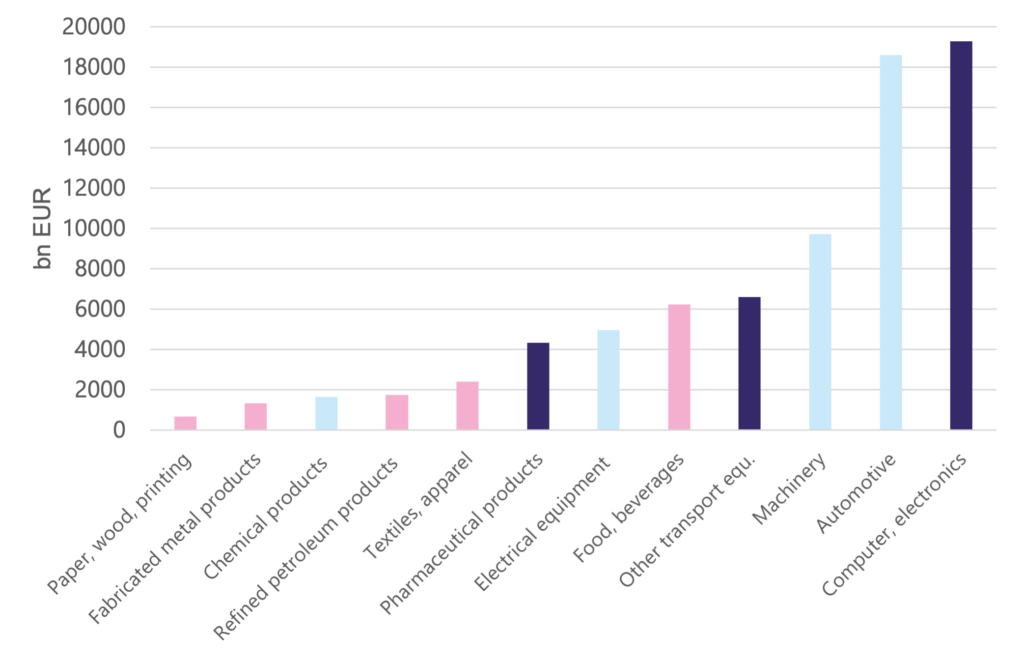By Berhard Dachs (AIT), Francesca Guadagno (wiiw), Robert Stehrer (wiiw), Anna Wolfmayr (AIT) and Zuzana Zavarská (wiiw)
Thirty years ago, most of the global R&D expenditures were concentrated in the US, Europe and to a lesser extent Japan. The rise of emerging economies in Asia has brought de-concentration and new players.
The TWIN SEEDS project gathered new data on the R&D exchanged within global value chains (GVCs). This new data shows that R&D increasingly diffuses between countries thanks to GVCs. In the last decade, the global interconnectedness of innovation networks expanded, as imported R&D grew in all advanced economies. The dependence on foreign R&D, however, remained quite stable in the EU and the US because domestic R&D efforts were also ramped up. Over the past years, the EU dependence on foreign knowledge increased in Finland, the Netherlands, and France, while it decreased the most in Bulgaria and Poland.
The US and EU are still the major contributors to global knowledge production, while Japan has been losing its importance. The share of China in global R&D efforts is considerably smaller, albeit visibly increasing over time (Figure 1). This also explains why the overall dependence levels of the US and the EU remained largely unaffected.

The largest dependencies for the EU are found in electronics and pharmaceuticals, but also automotive and machinery (Figure 2). These sectors are very R&D intensive, and at the same time highly dependent on foreign knowledge. On the other end of the spectrum lie more ‘traditional’ sectors such as paper, chemicals, or metal products where the EU displays global leadership in knowledge production.

From a policy perspective, complementarities between domestic and foreign R&D seem to be particularly strong in the most strategic sectors, making decoupling a very challenging strategy. The analyses within the TWIN SEEDS project reveal that investments in ICT assets such as statistical computing software, databases and database management systems, along with domestic knowledge production, help promote higher specialisation in the R&D stage of the production process. These results hold particularly strongly for the less advanced economies of the EU. This result suggests that an industrial policy in support of innovation and ICT absorption offers a valuable means of breaking away from specialisations in lower-value-adding activities and developing a competitive edge in R&D activities within global value chains.
